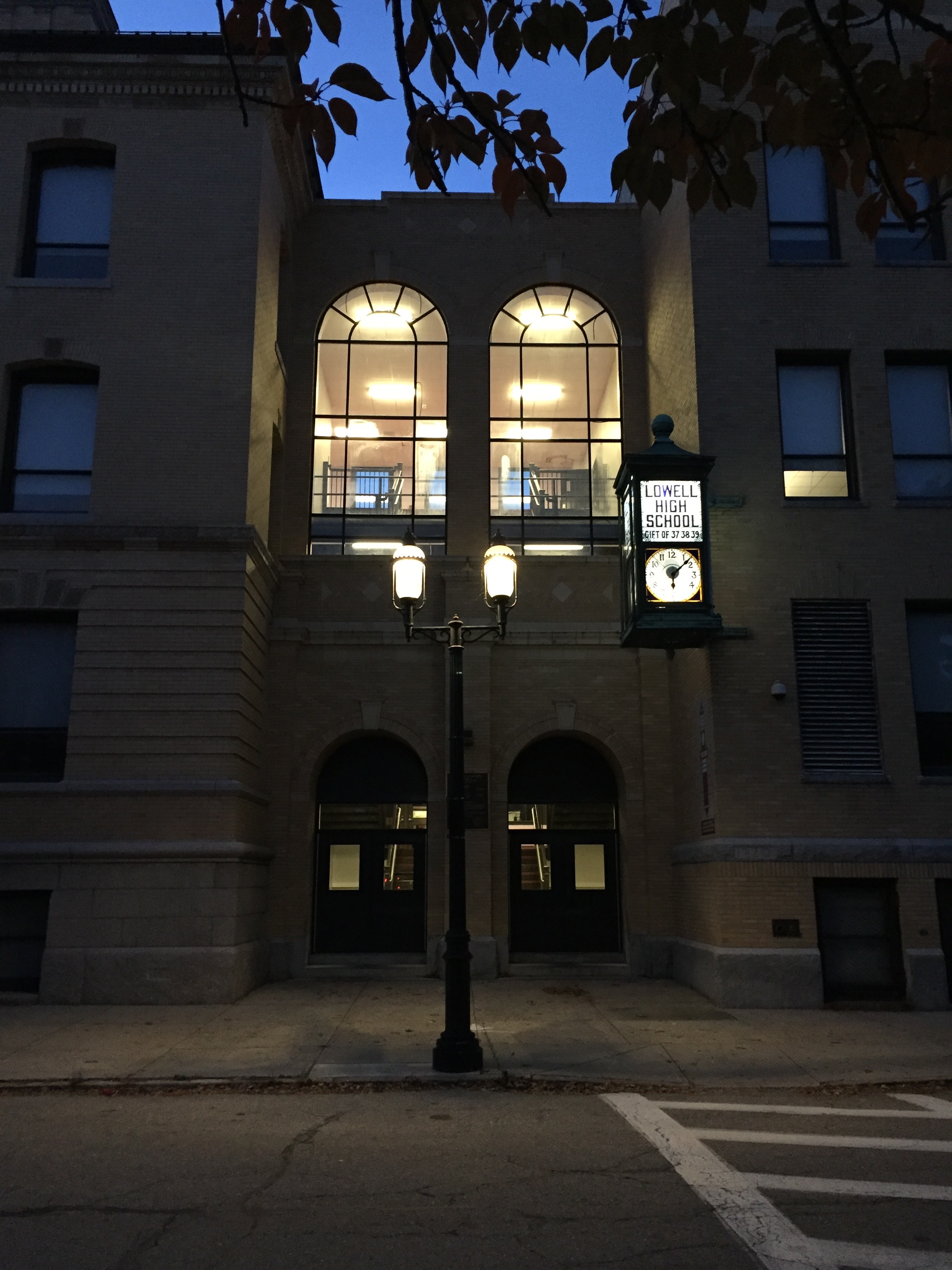School Committee Meeting, 5 November 2015
Meeting: Wednesday, November 4, 2015All members present.The day after local elections and a short agenda made for a quick public meeting - under 1 hour. The Committee met in Executive Session for an update of UTL negotiations/grievances after the public portion of the agenda. Most of the 19 agenda items were passed or accepted without much discussion.MotionsAgenda Item 11, (2015/395) LHS Athletics - Rule 53 Waiver Request, generated some clarifying questions. The Rule 53 Waiver Request, apparently an annual agenda item, applies to 7th and 8th grade students audition for “selected” high school sports (swimming/diving, hockey). While the aim of the LHS programs in these sports is to have a feeder system through the Middle Schools, there are costs associated with these sports that make that difficult. In the meantime, 7th and 8th grade student athletes are prepared for participation through the waiver, which passed.SubcommitteesSome time was spent summarizing Agenda Item 8 (2015/383), the Report from the Curriculum Subcommittee. The four-item focus of this meeting was:
Most of the 19 agenda items were passed or accepted without much discussion.MotionsAgenda Item 11, (2015/395) LHS Athletics - Rule 53 Waiver Request, generated some clarifying questions. The Rule 53 Waiver Request, apparently an annual agenda item, applies to 7th and 8th grade students audition for “selected” high school sports (swimming/diving, hockey). While the aim of the LHS programs in these sports is to have a feeder system through the Middle Schools, there are costs associated with these sports that make that difficult. In the meantime, 7th and 8th grade student athletes are prepared for participation through the waiver, which passed.SubcommitteesSome time was spent summarizing Agenda Item 8 (2015/383), the Report from the Curriculum Subcommittee. The four-item focus of this meeting was:
- Average age of textbook,
- Kindergarten Report Card,
- Eureka Math (elementary),
- iReady implementation.
A chart of the textbooks in use (see meeting packet) shows there is a need for new materials in the Middle School science (text 1998) and Grade 7 ancient history texts (1995?).While individual student textbooks become more and more obsolete and the use of "multi-platform programs" becomes more frequent, curriculum focus shifts from following a teachers’ guide to teaching standards (Common Core, NEXT Science Standards, link HERE for Massachusetts standards). The conflict in this approach comes when the program authors interpret a standard; it is important to remember that program publishers such as Pearson are trying to make a profit. Sometimes the connection between an activity and an important standard can be a bit fuzzy.In my opinion and experience, “textbooks” are becoming less of a one-book-per-student purchase and more of a curriculum or program purchase. For example, the textbooks listed for the Elementary program, my area of experience/expertise, include
- Children Discovering Justice (a program based on inquiry experiences led by the teacher),
- FOSS Science (mainly experiential, led by teacher, brief readings in a textbook collection),
- Eureka Math (developed from EngageNY curriculum units - teacher scripts/lessons),
- iReady (individualized Computer Assisted Instruction in Reading/Math),
- Calkins Writing Units (lesson sequences, relies on example texts)
- Fiction/Non-Fiction Toolkit reading guides (suggested scripts, uses trade books)
Adequate and in-time professional development/training will be the key to success with these programs. For the lessons to be successful, teachers need to anticipate and prepare materials (the FOSS Kits for example take hours of teacher preparation). Educators also need to be thoughtful about how the individual students in the classroom will need to be supported. While the LPSD provides some trade books for teaching lessons, it was often my experience that these books, referred to as mentor texts, came from teachers’ personal finances. The school district as a whole needs to continually review the effectiveness of the programs for our students in reaching standards. Notice I didn’t say passing a test.A second subcommittee meeting’s notes, Personnel, and Agenda Item 13, addressed Dr. Khelfaoui’s evaluation. Dr. Khelfaoui’s evaluation tool is directed by the Massachusetts (DESE) Department of Elementary & Secondary Education regulations, however, the specific professional and student goals are his own and were accepted.The link to the meeting packet can be found here.